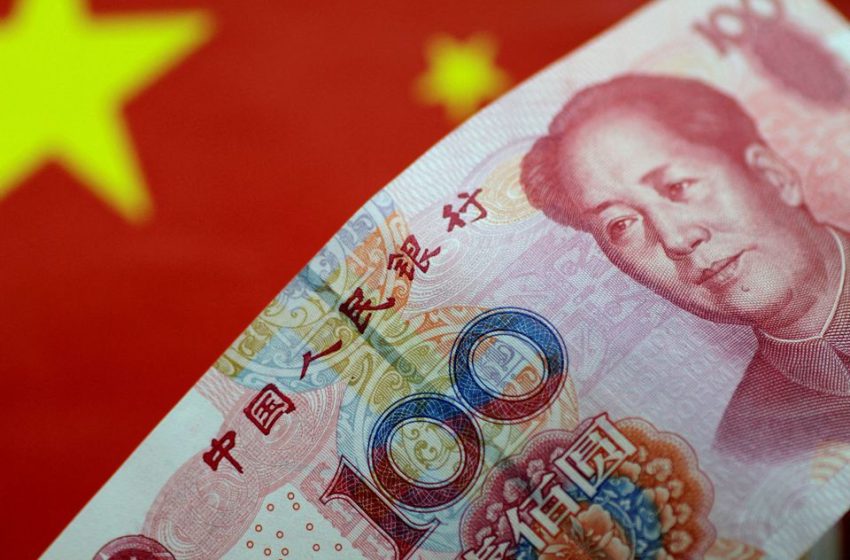
Exclusive: China’s state banks seen acquiring dollars in swaps market to stabilise yuan
SHANGHAI/BEIJING, Oct 17 (Reuters) – China’s state banks stepped up their intervention to defend a weakening yuan on Monday, with banking sources telling Reuters these banks sold a high volume of U.S. dollars and used a combination of swaps and spot trades.
Six banking sources told Reuters the country’s major state-owned banks were spotted swapping yuan for U.S. dollars in the forwards market and selling those dollars in the spot market, a playbook move used by China in 2018 and 2019 as well.
The selling seemed to be aimed at stabilising the yuan , with the swaps helping procure dollars as well as anchoring the price of yuan in forwards, said the sources, who have direct knowledge of market trades.
The yuan is down 11.6% versus the dollar this year. It was trading around 7.1980 per dollar on Monday.
One-year dollar/yuan forwards fell rapidly following the state bank actions, pushing the yuan to 6.95 per dollar. One of the sources noted the size of the dollar selling operation was “rather huge”.
“The big banks want to acquire dollar positions from the swap market to stabilise the spot market,” said another source.
State banks usually trade on behalf of the central bank in China’s FX market, but they can also trade for their own purposes or execute orders for their corporate clients.
A third source noted that the state banks’ trades appeared to be managed so that the country’s closely-watched $3 trillion foreign exchange reserves will not be tapped for intervention.
At the same time, the move helps state banks to procure dollars at a time when rising U.S. yields have made dollars scarce and expensive.
China burned through $1 trillion of reserves supporting the yuan during the economic downturn in 2015, and the sharp reduction in the official reserves attracted much criticism.
Reporting by Shanghai and Beijing Newsroom; Editing by Vidya Ranganathan and Ana Nicolaci da Costa



